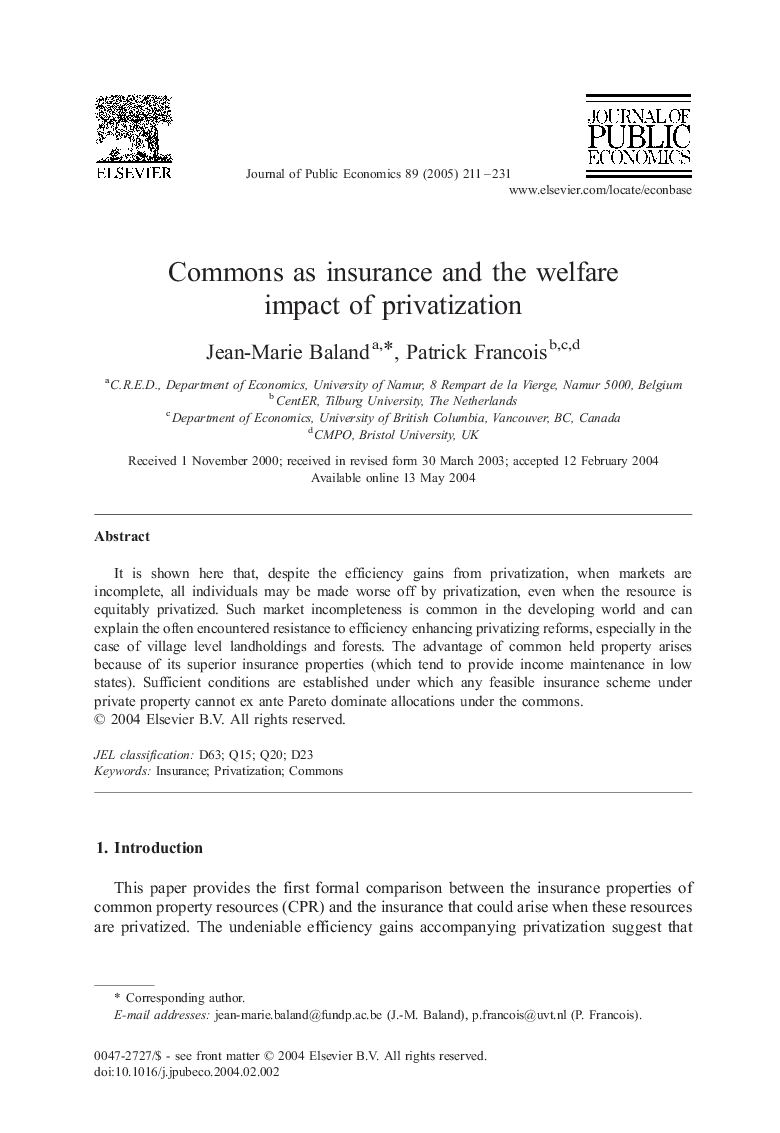| Article ID | Journal | Published Year | Pages | File Type |
|---|---|---|---|---|
| 9726873 | Journal of Public Economics | 2005 | 21 Pages |
Abstract
It is shown here that, despite the efficiency gains from privatization, when markets are incomplete, all individuals may be made worse off by privatization, even when the resource is equitably privatized. Such market incompleteness is common in the developing world and can explain the often encountered resistance to efficiency enhancing privatizing reforms, especially in the case of village level landholdings and forests. The advantage of common held property arises because of its superior insurance properties (which tend to provide income maintenance in low states). Sufficient conditions are established under which any feasible insurance scheme under private property cannot ex ante Pareto dominate allocations under the commons.
Related Topics
Social Sciences and Humanities
Economics, Econometrics and Finance
Economics and Econometrics
Authors
Jean-Marie Baland, Patrick Francois,
